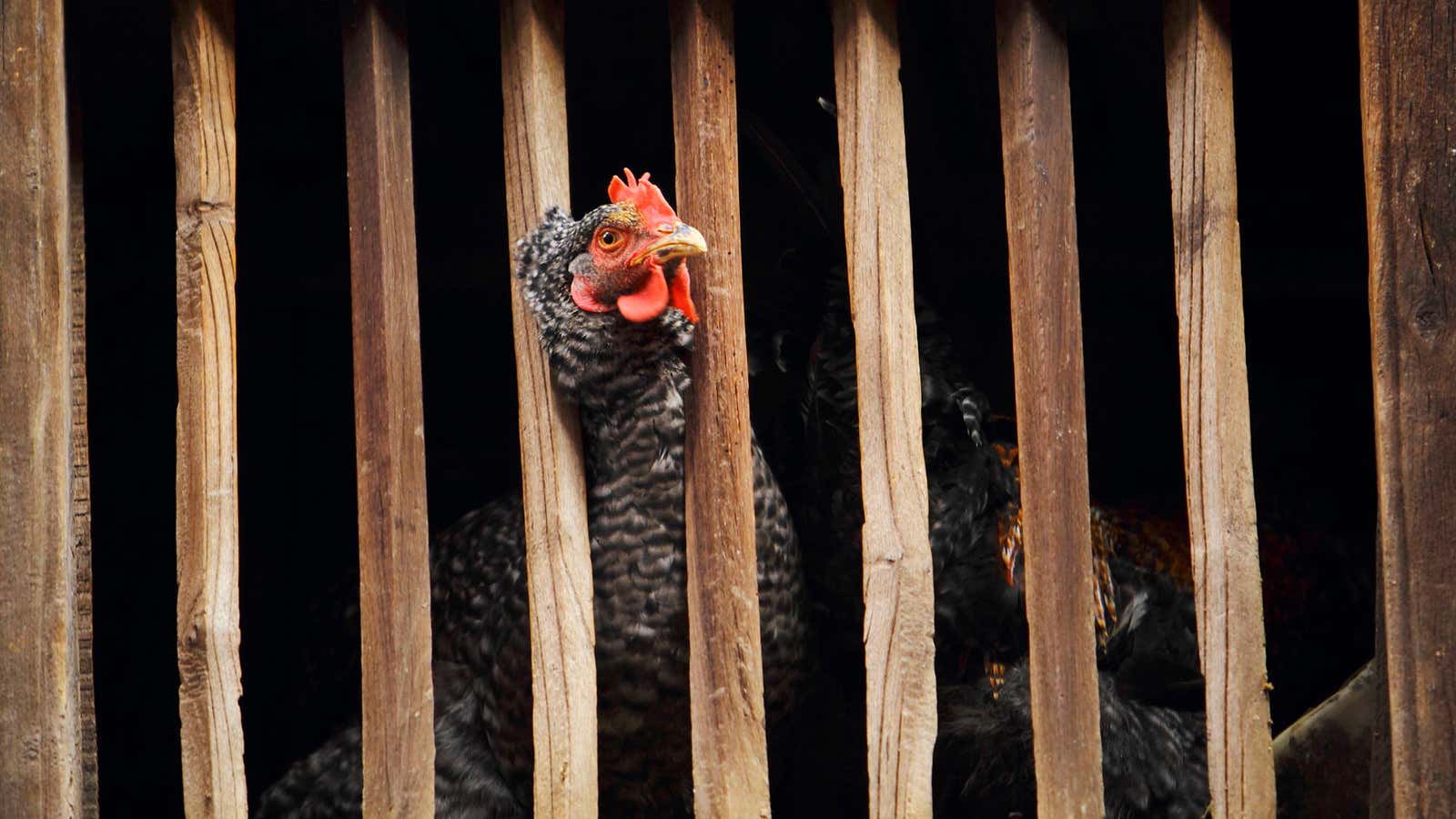Even roosters can’t escape the clutches of a self-righteous boss. Whenever the sun may rise, it’s the dominant rooster that gets to decide the timing of the dawn’s first cock-a-doodle-doo, and only then will others in the vicinity chime in. That’s according to a new study published in Scientific Reports, which found that lower-ranking roosters will compromise their own circadian clocks to stay in good stead with the group.
Takashi Yoshimura at Nagoya University and his colleagues have been working with chickens to understand their biology better. In one of their experiments, they put four groups of four roosters each into sound-tight rooms.
The researchers consistently found that when each room was exposed to light in a way to simulate the morning sun, the same rooster made the first call signaling that dawn had arrived. To be sure that these weren’t just coincidences, they removed the top-ranking rooster from each group. When that happened, the second-ranking rooster took on the leader’s task, while the others would wait for the new boss to weigh in. Yoshimura believes his findings should be true for groups of less than 10 chickens, where each individual can recognize the others and understand the social order.
Why do roosters bow to their bosses? Probably because chickens are highly social animals that form and respect hierarchies within groups. The cock-a-doodle-do might have been beneficial to humans before alarms were invented, but the crowing is actually a means of advertising a rooster’s territory.
Next time you’ll hear a rooster crow, you’ll know that, much like everywhere else, it’s another occurrence of a forceful boss getting his way.
